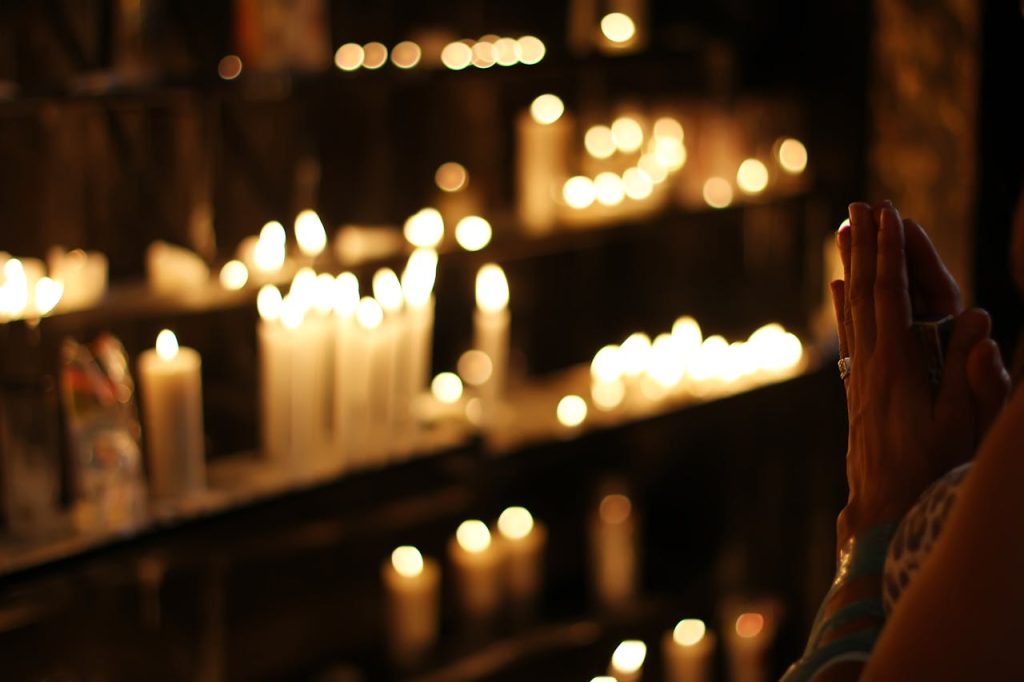How to learn truly pray: 10 important truths from the Orthodox priest
Many perceive prayer as something formal: he opened the prayer book, read - and the case is done. But in fact, a real prayer is not an automatic pronouncement of phrases, but a deep inner conversation with God who touches hearts.

Many perceive prayer as something formal: he opened the prayer book, read - and the case is done. But in fact, a real prayer is not an automatic pronouncement of phrases, but a deep inner conversation with God who touches hearts. The Orthodox priest with more than 20 years of experience shares 10 principles that will help to understand what a living, sincere prayer is-and how he changes a person.
1. Not every prayer is real
Saying words does not mean praying. If a person does not understand the content of what is said, does not invest in this soul, then it is just reading, not a spiritual connection. In prayer, the main thing is not the text, but the heart. And if it is silent, the prayer is empty.
2. Prayer is not a performance
External gestures, theatrical bows and excessive baptism in humans are not a sign of piety. Christ taught to pray in silence, in his room, without showing. Prayer for the public, for the sake of effect, is no longer communicating with God, but an attempt to impress the environment.
3. Prayer is not a schedule but a lifestyle
Well, if you pray in the morning and in the evening. But the ideal is the constant internal mention of God. As a mother who always worries about a baby, both in love, who think about each other, and the Christian has to "breathe" with prayer.

4. Without good deeds, prayer is just a sound
Prayer does not work separately from life. If a person offends others, curses, lives in sin, then his words do not come to God. As stated in the Gospel: Faith without works is dead. Therefore, true prayer is not only a word but also a way of life.
5. Image images - not always from God
In the Orthodox tradition, it is forbidden to imagine the images of Christ, the Virgin or the angels during prayer. Imaginary visions may not be from God, but from the evil one. In prayer, simplicity is important: the look at the icon, attention to words, sincere heart - and nothing superfluous.
6. Prayer must be clear
You should not mechanically repeat the Old Slavic texts that you do not understand. Pray in your native language, but most importantly - consciously. In order for the prayer to really make sense, it is worth knowing the Gospel, church doctrine, and catechism.

7. A true prayer leads to humility
If after prayer you feel better than others, it is a alarm. Prayer should generate repentance, a sense of imperfection and a desire to change. Pride and prayer - things are incompatible.
8. Internal focus is the key
How often do we "get distracted" even in the service: remember lunches, watch the phone or just dream. Such prayer is superficial. In order to avoid this, priests are advised to start with short prayers, keep attention, and if it "escaped" - return to the moment when you were still praying consciously.
9. Russe - not for everyone
Titles (rosary) are not a fashionable accessory or a necessary element of prayer for laymen. In a monastic tradition, a clutch is a tool of deep, multiple prayer. But for an unprepared person it can become a spiritual trap. Prayer should go from the heart, not from the calculation of beads.

10. Don't wait for inspiration - pray against the laziness
Many pray only when they "feel". But prayer is not always about inspiration. This is a spiritual discipline. And only the one who forces himself to pray regularly, over time, feels joy and peace from talking to God.
In conclusion, the priest reminds you: feel free to address the priest with your questions. The church is not only a place of service, but a community where anyone can get support, advice and spiritual support. Prayer is a path that leads to God, but one must go sincerely, carefully and without haste.

If you bought this in Aldi, throw now, the USDA said

An epidemic of e. coli of an unknown food reached 5 states, said CDC
